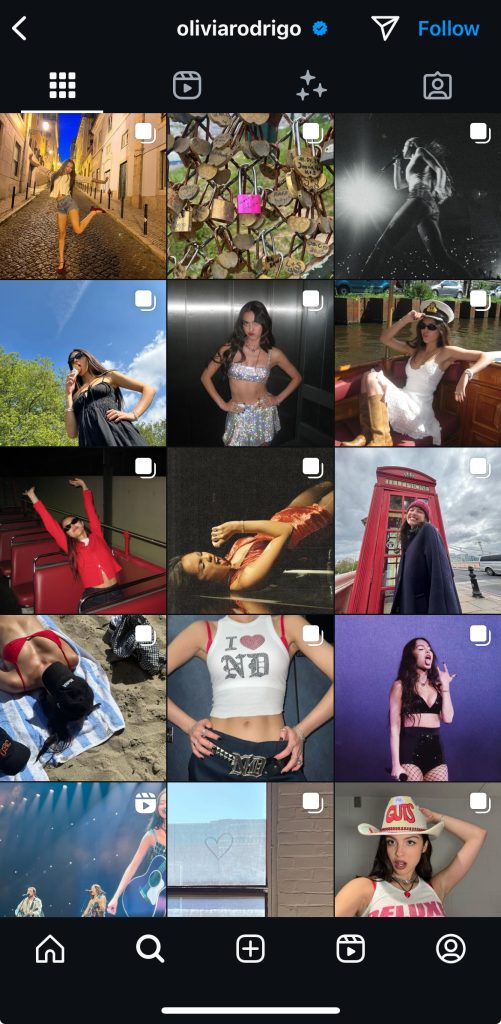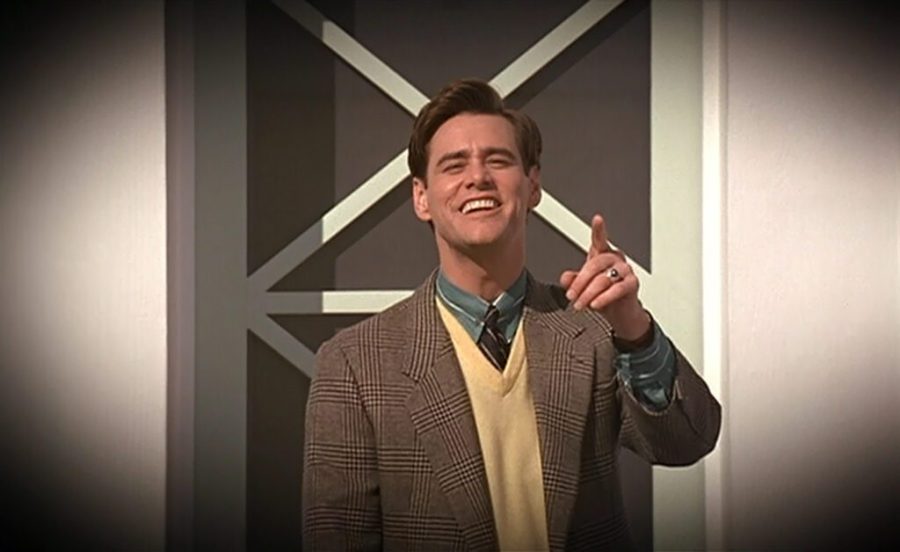In the digital world, everyday users and celebrities carefully construct their identities through their social media platforms. Social media allows celebrities to create their public image by curating select content, such as images, videos, and even post captions, to strengthen their image and connect with fans. This is known as impression management, a concept developed by sociologist Erving Goffman, who explains how people adjust their behaviour to make a good impression based on the situation and audience (Scannell, 2007).
Impression management theory
Goffman developed impression management theory to explain how people can control and shift their behaviour according to a situation to leave a good impression on the person they interact with. This can be achieved through how they present themselves, the way they speak and even how they dress. He referred to this as the front stage, where we perform to leave a good impression on people. However, there is also a backstage, a place of privacy where people are allowed to be authentic without having to perform (Scannell, 2007).
To better understand this, let’s apply the theory to celebrities, specifically music artists. Impression management is essential in understanding how music artists construct their social media identities, allowing them to shape how fans and the wider public perceive them. Social media platforms act as a front stage to perform and shape identities. On platforms like Instagram, X, and TikTok, artists can curate their posts to align with their image; by being authentic and maintaining the brand’s image, they can create a strong bond with their audience (Haziq, 2019). By selectively sharing content, whether it’s behind-the-scenes studio clips, concert photos, or quirky videos, artists create a front-stage persona. The self-curation of their online identities helps them maintain control over their image.
For example, Olivia Rodrigo’s social media identity gives off the impression of a quirky GenZ popstar.

What does the backstage look like for celebrities?
The importance of a backstage is that it is a place where people do not have to perform and can be themselves; however, a backstage requires privacy, and the nature of a celebrity is to be constantly in the media rotation and be visible to the public (Drake, 2007). Therefore, a backstage presence for artists is very limited in a digital world that demands visibility. The impact of this is that artists must consistently perform their personas to satisfy their audience, as they are always in the spotlight. Many artists, such as Chappel Roan and Tyler the Creator, have spoken on social media about fan expectations and behaviour outside of social media.
*Explixt langauge in videos*
Any behind-the-scenes moment that could contradict the image they created on social media platforms could potentially harm their image, risking the trust they have built with their audience. The pressure to consistently perform can also take a toll on an artist’s mental health, as they must constantly project an idealized persona with few opportunities to authentically be themselves.
In the digital age, the construction of identity is an exhausting balancing act for music artists, where every post reinforces the merging of public and private self into one, continuous performance.
References
Drake, P. (2007). Who Owns Celebrity?: Privacy, Publicity and the Legal Regulation of Celebrity Images. In: Stardom and Celebrity: A Reader. pp. 219-229. Available at: <https://doi.org/10.4135/9781446269534> (Accessed: 2 November 2024)
Haziq, S (2019) Putting the best digital self forward in the age of Social Media. Available at: https://medium.com/@haziqsabreen25/putting-the-best-digital-self-forward-in-the-age-of-social-media-d3dbec422b73 (Accessed: 2 November 2024)
Scannell, P. (2007) Media and Communication. pp.145-168. Available at: https://r1.vlereader.com/Reader?ean=9781849208307 (Accessed: 2 November 2024)
The Truman Show.(2024) Available at: https://www.the-cinematograph.com/movies/the-truman-show/. (Accessed: 2 November 2024)


Maybe we just in a fake world just like Truman.
The article is well-organised, starting with an engaging introduction about the parallel between social media and The Truman Show, setting the tone for the topic. It then delves into Goffman’s “front stage” and “backstage” concepts, explaining how celebrities carefully craft public personas while struggling to keep private lives. The post flows logically, with each section building on the last, and concludes by discussing the impact of this pressure on celebrities’ mental health. To improve the post, you could include more real-life examples or specific celebrity cases, making the theories feel more tangible.
Hello Lailat! First of all, I like the really eye-catching title of linking the film “The Truman Show” with the “Front Stage and Backstage” theory, which makes me curious about the connection between these two topics.
Second of all, you make a good explanation for Erving Goffman’s “Impression Management” and a great example and point stating that social media is a front stage for celebrities because they are public figures under numberless of eyes; they need to manage their persona or shape a perfect identity in front of people even on social media to maintain their image, which is essential to their career. In my opinion, social media is really a vital contemporary front stage for everyone, especially public figures.
Then, I thought you would give a celebrity’s “true self” to link to the “Backstage” theory; however, you talked about the backstage in a completely different way than my thoughts, which is a surprise and an excellent point! It is really sad that “Backstage” should be where people are comfortable with themselves, but public figures can’t even have their personal space and relax; even their backstage will also be invaded by other people and need to maintain the constructed persona. This is truly a “Truman Show” for them because their actions will be monitored by the public or, worse, harassed.
A little bit of suggestion: it would be great to explain a bit about the situation encountered by the celebrities mentioned in the “backstage” section.
Overall, it is a great blog that discusses the celebrity’s cases and is linked to the theory!
Goffman’s front-stage and back-stage theory explains how people “perform” in different situations to manage the impressions they make on others. This distinction between the front stage and back stage highlights the subtle tension between the “authentic self” and the “performed self” in celebrities’ lives, helping us understand why public figures sometimes long for a return to “ordinary life.”
However, celebrities’ true “back-stage” space has become increasingly restricted. The examples you provided make it easy to understand: the back stage, as Goffman describes, is a place of personal freedom, free from public scrutiny. Yet for celebrities, continuous exposure on social media and intense fan attention have almost stripped away their privacy. In this digital “front-stage” performance, artists must constantly meet fans’ expectations and maintain their personas, which invisibly adds to their psychological burden.
This continuous performance not only blurs the line between front and back stages but also prompts a re-evaluation of the concept of the “authentic self” in the digital age. The construction of a celebrity’s identity on digital media is both an opportunity and a challenge, as they interact with fans while also bearing the pressure of upholding a carefully crafted image. This “performance” affects not only their social media content choices but also subtly influences their daily behavior and mental state.You could give some more examples of celebrities about the backstage to solidify the point.
This is a great blog!
I really liked the choice of the Truman show as an example of the construction of identity in the digital world. Using the Truman show to demonstrate how social media is impacting our world today helps to give us further insight on how we are being influenced. I also liked the inclusion of celebrity posts on TikTok, for this further explains how celebrities are compelled to ‘perform’ and how that takes a toll on their mental wellbeing as they try to have an online identity. This blog post was very enlightening and I enjoyed reading it!